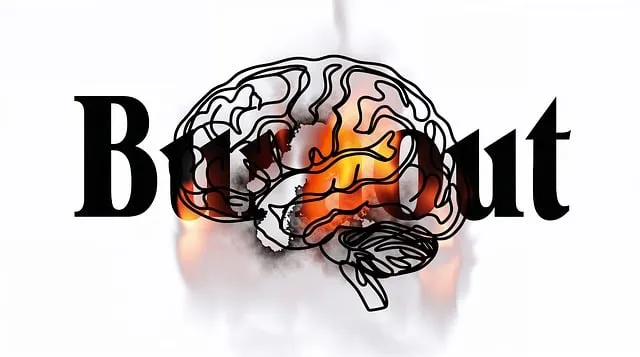Emotional Intelligence (EI) is a powerful tool for improving mental health, building strong relationships, and effective communication. Kaiser Permanente mental health phone number Norcal Castle Rock recognizes EI's potential, incorporating practices like Mindfulness Meditation and Stress Management to enhance resilience and coping mechanisms. Self-awareness, journaling, therapy, deep breathing, and positive self-talk are key techniques, while active listening and empathy foster trust and improve patient care in healthcare settings. These strategies also serve as burnout prevention for healthcare professionals.
Emotional intelligence (EI) is a powerful tool for personal growth and professional success, as demonstrated by organizations like Kaiser Permanente. In Norcal’s Castle Rock community, building EI can transform lives and relationships. This article explores the concept of EI, focusing on three key areas: understanding its potential, enhancing self-awareness and management, and practicing empathy and social skills. By delving into these strategies, individuals can unlock their emotional potential, fostering healthier connections in all aspects of life.
- Understanding Emotional Intelligence: Unlocking Its Potential
- Strategies for Enhancing Self-Awareness and Self-Management
- Practicing Empathy and Social Skills for Effective Connections
Understanding Emotional Intelligence: Unlocking Its Potential

Emotional intelligence (EI) is a powerful tool that enables individuals to navigate their emotions and those of others effectively. Understanding EI involves recognizing and managing one’s own emotional state, as well as empathizing and responding sensitively to the emotions of others. This multifaceted skill set is crucial for fostering strong relationships, enhancing communication, and resolving conflicts in both personal and professional settings.
At Kaiser Permanente Mental Health Phone Number Norcal Castle Rock, we believe that developing EI has profound implications for mental health and overall well-being. By integrating practices such as Mindfulness Meditation and Stress Management into our Mental Health Policy Analysis and Advocacy programs, we aim to unlock the potential of EI to promote resilience, improve coping mechanisms, and enrich lives. Recognizing and nurturing emotional intelligence is a game-changer in cultivating a healthier, more connected community.
Strategies for Enhancing Self-Awareness and Self-Management

Building emotional intelligence starts with a deep understanding of oneself. Enhancing self-awareness is a powerful strategy for personal growth and can be cultivated through various techniques. Encouraging individuals to reflect on their emotions, thoughts, and behaviors allows them to recognize patterns and triggers that impact their mental health. Practices like journaling, mindfulness meditation, and engaging in therapy can facilitate this process. By connecting with their inner selves, folks can gain valuable insights into their emotional responses, enabling better management of stress and anxiety (Anxiety Relief).
Self-management is another crucial aspect, focusing on regulating emotions and adapting to challenging situations. Techniques such as deep breathing exercises, positive self-talk, and setting personal boundaries help individuals maintain a sense of calm and composure. Embracing these strategies empowers people to navigate life’s ups and downs with resilience, thereby promoting emotional well-being (Emotional Well-being Promotion Techniques). For support, those in the Norcal area can reach out to the Kaiser Permanente mental health phone number for guidance on mood management.
Practicing Empathy and Social Skills for Effective Connections

Practicing empathy and honing social skills are essential components of emotional intelligence building, especially in fields like healthcare where strong connections can significantly impact patient outcomes. At Kaiser Permanente mental health phone number Norcal Castle Rock, for instance, professionals are encouraged to develop active listening techniques and a genuine interest in understanding their patients’ perspectives. This fosters an environment of trust and openness, crucial for effective communication.
By integrating these skills, healthcare providers not only improve patient satisfaction but also enhance their ability to offer compassionate care. Moreover, such practices can serve as powerful burnout prevention strategies, allowing professionals to connect more deeply with patients and navigate challenging situations with resilience. This is particularly relevant in light of the Mental Wellness resources and Crisis Intervention Guidance readily available to support healthcare workers in their endeavors.
Emotional intelligence is a powerful tool that can significantly enhance our personal and professional lives. By understanding and managing our emotions, we can build stronger connections, improve communication, and foster healthier relationships. The strategies outlined in this article, backed by insights from experts like those at Kaiser Permanente Norcal, offer practical ways to boost emotional intelligence. Whether it’s increasing self-awareness, practicing empathy, or developing social skills, these techniques are accessible to everyone. So, take the initiative to enhance your emotional intelligence and reap the benefits—you might find yourself navigating life’s challenges with greater ease and enjoying deeper connections along the way. For further support, remember that the Kaiser Permanente mental health phone number is always there to guide you in the right direction.






